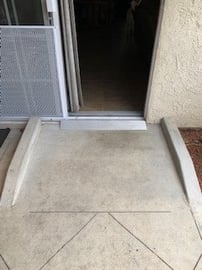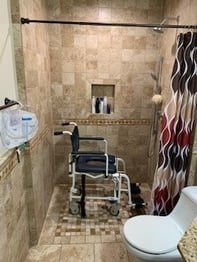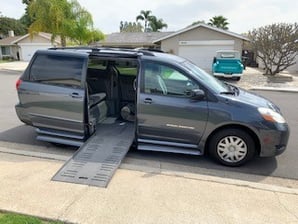10 Things Needed After Spinal Cord Injury
I was thinking back to when my boy was first injured and navigating through the process of this injury.
We were given the Paralysis Resource Guide, a large resource book from the Christopher & Dana Reeve Foundation we nicknamed the SCI Bible. We met other families who had been dealing with the same injury and asked a million questions. It’s now been over a decade.
Here is a list of the top 10 things I’d recommend setting into place after an SCI. These are not in any order.

1. Support. You will need a lot of this, whether it is physical, emotional, or financial support. This injury will affect everything. When people ask, “What do you need?” or, “How can I help?” TELL THEM. Grocery shop, cook meals, laundry, house cleaning. TAKE THE HELP. For emotional support, find someone you can talk to or a support group. Financial help will be appreciated. You will find out that the wheelchair world is expensive.
2. Wheelchair. In the early stages of injury, you will be fitted for one that will be properly measured and should feel like an extension of your body. They can be custom adjusted as needed. There are motorized or manual wheelchairs.
3. Hoyer Lift. A piece of medical equipment that can move a person from place to place without lifting manually. In the long run, this will save your back from getting physically worn out.
4. Ramps. You will need a ramp to get into your home. We used a portable ramp to get into our back slider door, and we eventually poured a concrete ramp. The portable ramp we keep in the trunk of our van for when we go places that may not be wheelchair accessible.

5. Roll-in Shower and Commode Chair. This task is one of the largest. We had volunteers who had construction experience build us a roll-in shower. We bought special door hinges that allow the door to open in a way that widens the doorway (used for bedroom doors as well). We picked out a commode chair (we use one called Shower Buddy) that could be rolled over the toilet and then wheeled into the shower.
6. A Comfortable Mattress. Important. You can get a mattress topper or even a hospital bed with moving parts that help avoid getting pressure sores. These can be dangerous and very hard to heal. Take this seriously when finding a mattress.

7. Accessible Vehicle (with a ramp). We started out with a truck and lifted my son in and out. We bought a Bruno Chair that made this much easier but finally purchased a wheelchair van with a ramp. This was the best choice. It has made going places a lot easier. In our area, through the public bus system, they offer Access Buses (smaller busses that pick you up from your house).
8. Therapy. Physical therapy is needed. We hired a one-on-one trainer. There are gyms that are set up for people in wheelchairs. We have also tried water therapy and acupuncture. Occupational therapy is tedious but is helpful. Re-learning new ways to take care of yourself. Talk therapy is a great way to process those emotions or find a support group with people who understand.
9. Medical Supplies. This will be different for each person. You will find the supplies that work best for you, and things can change as the years go by. Most insurance companies will provide the necessities—urine leg bags, night bags, condom catheters or internal caths, suppositories, gloves etc. We look on eBay or different medical supply companies for the things not covered or the types we like better.
10. Activities and Goals. Make sure you get outside, and sit in the sunshine, if possible, even if just 5 minutes. Make a goal list of both small and large goals. Having goals written down, I think, helps achieve them.
Have patience and perseverance. You are strong and can still live a good life even after a spinal cord injury. Never Give Up.
This post is purely educational for our community readers. The Reeve Foundation does not endorse these products. These opinions are that of the blogger.Join Our Movement
What started as an idea has become a national movement. With your support, we can influence policy and inspire lasting change.
Become an Advocate